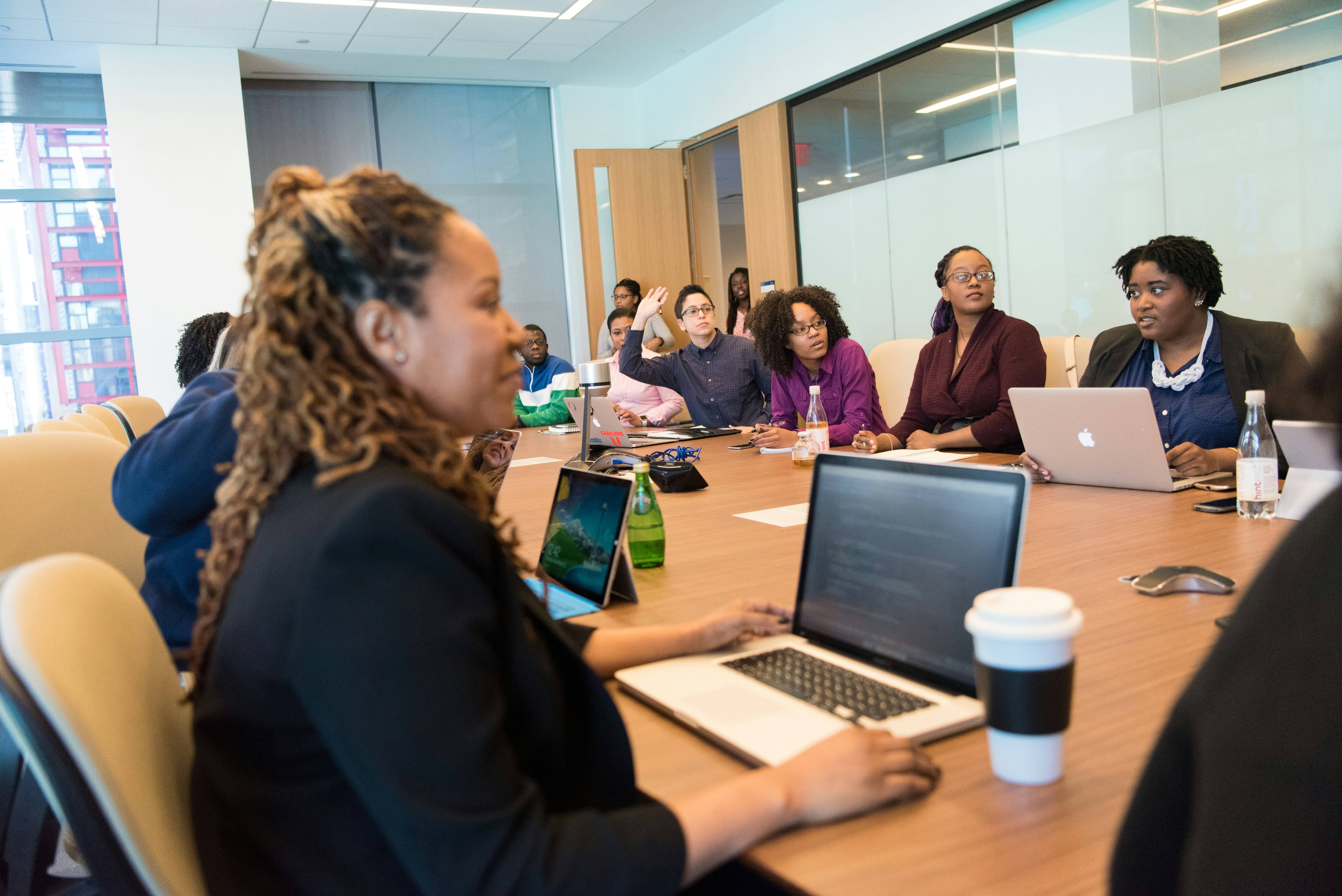With time comes learning. With societal change comes the need to update the way we do things in the workplace. One of those shifts is the gradual transition we're seeing from traditional "HR" to new-school "People Ops/P&C". But what's the difference?
Is it worth switching to the new methodology?
And how do you make that shift effectively? Well, read on!

Context
Human Resources; a staple of companies large and small for decades now.
And... unfortunately, the department everyone loves to hate.
Well, I'm here to tell you about something you may not be aware of; a positive shift away from traditionalist HR, towards a function that's been reimagined for the 21st century workforce.
People Operations (or People & Culture, as some like to call it), is a field that comprises all the traditional things you've come to expect from a HR function, but is reworked (to quite a large degree), to suit our times, our modern economy, the wants and needs of our modern (and forthcoming) workforces, and to generally shake things up in what has been a very stagnant space with negative connotations surrounding it for quite some time.
But, don't just think People Ops is HR with a shiny cloak or a new name. It really is a completely new way of fulfilling the People function at an organization, and what underpins it is an ideology far removed from that which formed the foundation of HR back in the 80s.
Through first-hand research, having led People initiatives and teams over numerous years, I can tell you that this methodology is inherently much better in every regard - for employees and companies alike.
So, let's dig a little deeper, shall we?
What's "Human Resources" Anyway?
To understand where we're going, we need to understand where we're coming from. Not in depth, but at least on the surface level.
Human Resources is a very specific business function. It encompasses things like:
- Updating and enforcing policies
- Mediating disciplinary proceedings
- Researching labor law and ensuring business compliance
- Processing employee documentation (admin for those joining and leaving the company)
- Recruiting (retroactively) based on business requirements at the time of recruitment
- Planning workforce structure and hiring strategy, based around present business goals
But, there also exists, in stark contrast to HR, (surprisingly to some, especially those who've not had exposure to newer organizations, younger employees, or the tech space - like I fortunately have), a completely different way of doing things. It's a different approach, with different values, and distinct goals. It's an entirely reworked methodology, that just so happens to give you what HR gave you, but with more, and in a better, more suitable way for our time.

Not to mention, it allows you not only to form your People function around a modern methodology, but it allows you to escape the very negative connotations that have rightfully enshrouded "Human Resources" for decades now.
Trust me... when a People Ops/P&C practitioner such as myself sees "HR" in a job description, or when a Gen Z or younger worker sees "HR" as part of a career opportunity (title, responsibilities or otherwise)... we run away. Fast. Because it's telling, in 2024, of how you do things as an organization.
I mean, it's all in the name isn't it? Human Resources. Human Capital Management. It's a very... clinical, detached, fiscal way of looking at things. It views your workforce as a cost of doing business, and a tool to be leveraged for financial gain. It's lacking humility. These are human beings. People Operations, or People & Culture, on the other hand, changes that perspective (and what you do about it as a result) entirely.
Either you're on one side of history - "Team HR", or you're on the other - "Team People Ops".
And that's a very important distinction for those of us seeking work, and those of us in the People space. But why? Well, allow me to explain.
Alrighty, So... What's "People Operations" Then?
People Operations is a reimagining and reworking of the traditional HR function, to get things aligned with our modern, globalized economy, which is full of techy goodness; new, young workers; legislation; and positive cultures and processes that didn't exist back when HR was first formulated and implemented as a staple company department.
Essentially, People Ops comprises all the things you've come to expect from HR, like policy implementation, workforce planning, industrial relations, and maintaining sensitive employee data in some kind of digital format.
However, People Ops does two additional things.
One; it changes up the approach to be people-first, and culture- and values-centric. That means a lot. In every policy you write, with every process you roll out, with every new platform you implement across teams, with the way you design your hiring funnel, with how you conduct cultural activities, and with how you measure and manage performance... you're doing it with that mindset now.
That probably means a lot more anonymous staff wellness surveying; Diversity, Equity, and Inclusion tracking; salary benchmarking; Learning and Development budgeting; and general efforts to design things in a way that makes your culture appealing, so that you retain great talent. As it should be.
Two; this modern approach is all about being proactive, planning for the future, and being open-minded, and open to change and adapting, as you learn. It's about being iterative, and refining things as you go. Horizontally, vertically, in technical and non-technical roles, across geographic boundaries. It doesn't matter. The point is, your new approach is one of accepting and embracing change, knowing the strength in diversity, owning and learning from your mistakes and just moving forward (because we're all human beings, after all), and treating people fairly and well, because they've chosen to bring their talents to your organization rather than another.

I'm sure you can tell how vastly different this approach is from "traditional HR". But, in a good way. In so many ways.
It's no longer the 1980s. Your organization should be built, from the ground up, based on a People-matters approach that suits the current times, and the environment in which we operate. That's how you succeed.
And, How About People & Culture?
Oh, that's an easy one. It's the same as People Operations. Different companies might use these terms interchangeably, as I do.
Just remember that People Ops and P&C are new-school, and HR is the old approach. Then, whether you're posting a job ad, or reading one for yourself, you've got the terminology sorted! Well done!
So, In Essence, How Do The Two Approaches Differ?
In the most reductive way possible:
- Where HR is reactive, People Ops is proactive
- Where HR is siloed, People Ops is integrated across all teams
- Where HR is focused on enforcing policies, payroll, org charts, and disciplinaries (i.e., "process-driven/process-centric"), People Ops is focused on attracting and retaining great talent, learning & development, 360 performance reviews with reciprocal feedback, and fostering a positive, diverse culture (i.e., "people-driven/people-centric")
- Where HR is focused on managing the now, People Ops is focused on that, plus a large amount of planning for the future
- Where HR is based on maintaining an administrative status quo from decades ago, People Ops is designed for modern teams and organizations, and is adaptable and able to pivot
- Where HR is about maintenance of what already exists, People Ops is about experimenting, and continually iterating upon what we have, because there's always room for refinement, new ideas, and better ways to do things

Is it worth it? Absolutely!
Is This a Positive Change?
100%, yes! Absolutely! In fact, studies have shown that more and more companies are shifting away from HR and towards People Ops, and then remaining with the latter implemented, because they recognize the positive results that come from doing so. Studies have shown that companies get higher performance and employee retention, and employees get higher job satisfaction and enjoyment from their professional cultures, as a result of shifting, in a genuine and complete way, to People Operations / People & Culture.
And, in my personal opinion, based on my first-hand experience over my years in People Ops leadership, that has proven to be true, time and time again. Across companies. Across teams. Across cultures. Across geographical boundaries. Across industry sectors. And across entrenched culture and value sets. It just doesn't matter what the situation is. This more modern approach is just... more effective.
It's also not hard to identify the value it brings. After giving the Head of People sufficient time to implement changes, and time for those changes to have an effect, just a couple of quick, anonymous employee satisfaction surveys about general workplace happiness, role satisfaction, cultural buy-in, understanding of core values, job security, whether they feel that the company cares about them (their well-being and development), and polling and contrasting your DEI, will show you the improvements that a People Ops approach makes.
It's a very positive change for industry, employees, and society as a whole. It's one that we should all follow.
Guess What? There's More to Life Than Work
Yes. It's true, at least for most of us, whose work isn't part of their personality. And that's coming from me - someone who cares deeply about the work they do, and is very invested in going to bed every night proud of his contributions in the workplace, and the value he added towards the company mission.
But, personal lives go on simultaneously, and are just as, if not more, important. That's a fact we can't, and shouldn't try to ignore, as People Operations professionals and members of Senior Leadership Teams. Doing so would be a great disservice to the people who give of their time and energy to help our companies achieve their missions. And that's not fair.
Yes, life's sometimes not fair. But in this case, we're in control of the justness and equity that occurs in the workplace. We're the ones crafting the culture, embodying the values, and setting the examples others follow. We have the power to make those cultures open-minded, positive, and wholesome.
We have the ability to show our teammates that they're valued and respected, not only for their career contributions and technical skills, but also for who they are, as fellow human beings. For their personalities, cultures, backgrounds, traditions, lifestyles, personal choices, personal opinions, and general life aspirations.
And that's part of why the People Operations approach exists, and what it can help you achieve. Acknowledging that we're all human beings, with our own personal lives running concurrently to our work lives, and making people feel seen, heard, valued, supported, and truly appreciated for who they are outside of work, in life, in general, can (and should) be a goal of every Senior Leadership Team. Adopting a People Ops approach can get you there!

This Seems Like a Mammoth Endeavor!
It could be. That all depends on a multitude of factors, such as, but not exclusive to:
- How much alignment you already have with the People Ops approach
- How willing your Senior Leadership Team is to giving this change a try
- How genuine that willingness is (i.e., will it be backed up by guidance and funding?)
- How entrenched your existing culture is across your workforce (this will determine how long the People Ops approach will take to permeate and take its positive effect)
- How much autonomy you give your new people-centric, culture-focused Head of People to implement a People Operations / People & Culture approach at your organization
And these would all need to change appropriately in order for you to have an effective transition from old-school HR practices to a fresh, new, 2020s-suitable People Operations methodology. But... that's where my work comes in!
I'm very used to building rapport, presenting things in ways that people would receive well (knowing my audience), adapting to different communication styles, building consensus amongst vastly different personalities, working directly with Senior Leadership and Team Leads/Managers to implement new strategies, and working to improve cultures, day by day. I'm also used to doing this work at a variety of different organizations, in numerous different industries, across various different countries, for globally-dispersed, innovative, diverse teams.

When I achieve that for a company, I've unlocked their ability to attract and retain truly fantastic talent, be proud of their values and culture, and go forth to achieve their overall mission. Is it easy work? Definitely not. But I'm not in this field for a fun ride. I'm here to get my hands dirty, putting in the hard work to help companies meet their goals, using a people-first approach. After all, without loyal, happy, fulfilled, and motivated people, you don't have a successful company. Take it from me, based on first-hand experience in the field; it really is that simple.
So, the key here is to commit to the change, and then back that commitment up with follow-through. That means hiring a highly competent, motivated People Operations practitioner to drive the transition. It also means providing the necessary funding (if applicable) to implement the changes. And, it means giving the Head of People the trust and autonomy to actually bring about that positive shift in how you do things, so that your policies, processes, and culture can improve over time. It's really not difficult, if you're genuinely keen to make the shift.
I'm In. Where Do I Start?
Hire someone who is on Team People Ops. Someone with the ideological leaning and methodology that aligns with the People Operations / People & Culture approach.
Because, that person doesn't need to be convinced of its value. They're already advocating for it. Either through the work they do, or vocally, in meetings and at conferences and networking events.
You want someone like myself, who is all-in on people, culture-centric, and mission-focused. Someone who understands that employees (fellow human beings) are the backbone of successful businesses. Who understands that those people have personal lives that run, continually, concurrent to their work lives (and are quite possibly valued more than work, as they should be). And, someone who understands that those people can choose, at any time, to go and work somewhere else. They're not beholden to you.
We're so very globalized, as a society and economy, these days. People can work from a café anywhere in the world, for a company from anywhere in the world. And they do. As they well should. What matters is that you're delivering, not how or why or from where, or what colored PJs you're wearing when you do, or what cultural activities you participate in, or who you befriend (if anyone) at your company. All that matters is that you're meeting (and ideally exceeding, when possible) the expectations of your role, and that you feel fulfilled in that role, and are able to develop your skills, and be happy working with the company you've chosen to work with.
So... naturally, we need to make sure that they're learning, growing, developing, feeling supported, have a good understanding of their roles, are able to use their skills to the fullest extent, and know the value that they bring. Not to mention, are properly, fairly rewarded for that contribution. People who embody your values and truly align with your culture and mission. Because that's how you have a dedicated, committed, loyal, innovative, and creative team of people who help you succeed in your overarching goals.
To me, that understanding is obvious. And I know how to make those things happen. So, hire someone who is fully in favor of a People Operations or People & Culture approach.
Then, give them the autonomy to actually implement that methodology, across the company. That may mean lots of change, or just some minor tweaks, depending on how your business does things now. But, either way, if you hire them, let them do what they do best. That's why you hired them in the first place, right? Trust them, and if they care deeply about their outcomes and love the work that they do, like I do, they'll deliver.

If you do that, well done... you've done what so many companies wait too late to implement. Don't wait until you're a team complement of 50 and then appoint the right person to undo what has become entrenched. Get someone who cares about people in early, so they can help you build the team you want, centered around the values you already know you have. Get someone who cares in early. Then you'll secure your success.
Closing Thoughts For You
Times have changed. A lot. And that's a thoroughly good thing.
Just as we, as people, are, ideally, constantly learning and growing, so that we can be better, (both for ourselves and for others), so too should organizations.
No-one wants to be the stuffy, corporatist, hierarchical, egotistical business that people don't want to work for, and say negative things about when not in professional company. I'm sure you don't want that for your organization.
Switching from HR to People Operations may seem like a massive deal.
As a People Ops Professional, I can tell you it is. But not in the implementation. If you hire someone like me, who really believes in their methodology and cares about their outcomes, if you pay them well, and if you give them the trust and autonomy to do what they do best, the implementation will go smoothly and be accepted by your workforce.
The results will speak for themselves.
And that's where it is a big deal. In the results. The impacts that doing this shift has on how happy and fulfilled your team members are, how much they're living up to their full professional potential, learning and growing, how loyal they are to your company, and how they advocate on behalf of your organization and recruit other great, talented individuals to work with you... that's telling. That's when you know, in the People sphere, you've won.
Feel free to reach out to me if you'd like to network! I love meeting new people and sharing stories. You can send me an email, send through a LinkedIn DM, or reach out to me via the methods on this page.
I hope you enjoyed the article, and I look forward to connecting with you, if you'd like to. Have a wonderful rest of the day!
------------------------------
I post a variety of articles on my website about my life, People Operations, and various other topics. To follow along with future articles I post on this website, feel free to follow me on LinkedIn here.
Informational sources for this article: 1; 2; 3; 4; 5; 6; 7; 8; 9; 10; 11; 12; 13; 14; 15; 16; 17; 18; 19; 20; 21; 22; 23; 24; 25; 26.
Image sources for this article: 1; 2; 3; 4; 5; 6; 7; 8; 9; 10. (Note: either some or all images have been converted to formats other than their originals, as well as resized, to better suit the article).
